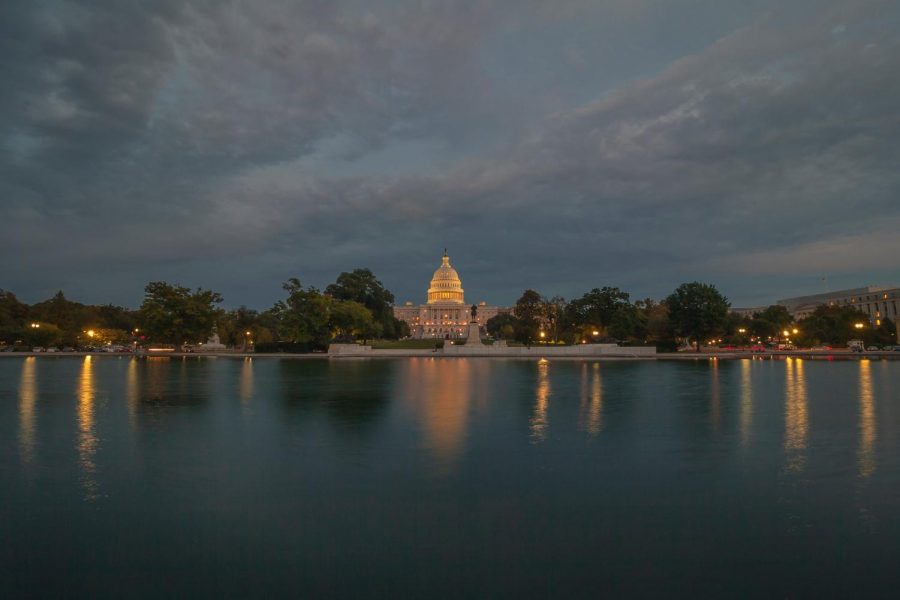It’s Time To Face the Truth: The United States Must Remove Democratic Sanctions on Other Countries
The events of January 6th, 2021 were the rude awakening the world needed to see the United States’ historic failure to “preserve democracy.”
On January 6th, 2021, the Capitol building was attacked following a high-strung election season. This act of domestic terrorism is not only a striking indication of how severe the political divide within our nation is, but also a rude awakening to the fact that America is not the beacon of democracy it has historically claimed to be.
On January 6th, 2021, the Capitol building was attacked following a high-strung election season. This act of domestic terrorism is not only a striking indication of how severe the political divide within our nation is, but also a rude awakening to the fact that America is not the beacon of democracy it has historically claimed to be.
Global leaders had a lot to say following the events that took place at the Capitol. Notably, the president of Zimbabwe, Emmerson Mnangagwa, tweeted on January 7th, 2021, “Yesterday’s events showed that the U.S. has no moral right to punish another nation under the guise of upholding democracy. These sanctions must end.”
Mnangagwa not only raises the question of whether or not the United States currently has the justification to impose democratic sanctions but if they ever had it to begin with. The government currently has sanctions on 30 countries and territories with the Trump administration having weaponized them, adding the most sanctions in one year both in 2017 and 2018.
“America’s track record of systemic racism, imperialism, and corruption has never given it a moral high ground to uphold the standard for global democracy, let alone critique other nations about it,” Carson Michel ’23 said. By bringing up the fact that America has partaken in countless anti-democratic institutions and practices throughout history whilst still portraying itself as a beacon of democracy, Michel highlights the hypocrisy of our nation.
Juliet Daniel ’21 defines democracy as “a system of government in which the general public are represented.” Taking this definition into account, Daniel notes, “The majority of our government has looked the same for the past 250 years — old, wealthy, male, white, and elite. That isn’t representative of the American people at all.” The United States has labeled itself the guardian of democracy before even establishing it domestically.
Since the introduction of the Truman Doctrine in 1947, sanctioning has become a political move with the intent of spreading American influence across the globe. Throughout the Cold War and ever since the establishment of that policy, the United States has focused its resources on wherever it felt democracy was “being threatened.” The true underlying motive of these actions though was strengthening the influence and economic power of America. “In Operation Condor in the 70s, the U.S.A. had no interest in defending the democratic elections held in these South American countries, because it gave the U.S.A. more money to install military dictatorships,” said Adam Osman-Krinsky ’21.
The operation to which Osman-Krinsky refers was a terror campaign backed by the United States that took place in six South American countries during the 1970s. During this time, the Central Intelligence Agency (CIA), alongside other federal agencies, facilitated assassinations and torture by giving intelligence to right-wing dictators, providing them with torture methods, and sponsoring their secret militaries. Sponsoring dictatorships and assassinations of political opponents are just some of the various undemocratic activities that the “leaders of the free world” partake in.
Ultimately, the Capitol Hill Riots reveal the lack of democratic values in the American government and their sanctions. This can be proven statistically, as according to a 2009 study conducted by the University of Memphis, between 1981 and 2000, sanctions contributed to a significant erosion of human rights in the countries on which they were imposed. On top of that, in another study co-authored with University of Missouri political science professor Cooper Drury, it was found that sanctioned countries became less democratic, as well.
The United States does not and never did have the moral justification to place democratic sanctions on other countries. U.S. interference in the affairs of foreign governments has only ever been for the purpose of benefiting our nation, and it has come at the cost of other countries. Evidenced by United States sponsored coups in countries such as Nicaragua, the United States has never taken the needs of lesser developed countries into consideration, only their own, by forcefully removing leaders that do not align with their interests.
Thanks to President Mnangagwa’s words, we can now see more clearly how important it is that other countries are pushing back against the United States’ weaponization of sanctions, for democratic sanctions are as Juliet Daniel notes, “a lazy solution that hurts civilians in those countries, while the government officials that it intends to target just sit back and collect more money.”
Juliet Daniel ’21 defines democracy as “a system of government in which the general public are represented. The majority of our government has looked the same for the past 250 years — old, wealthy, male, white, and elite. That isn’t representative of the American people at all.”
Gabriel Lipschutz is a Staff Reporter for 'The Science Survey.' He enjoys telling unknown stories and writing opinionated pieces, valuing both the place...

